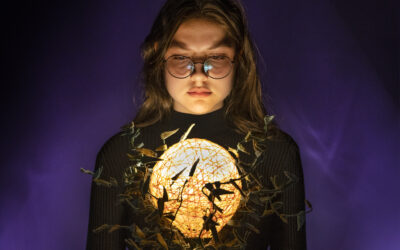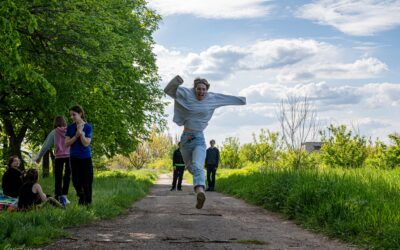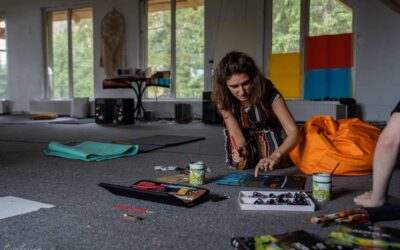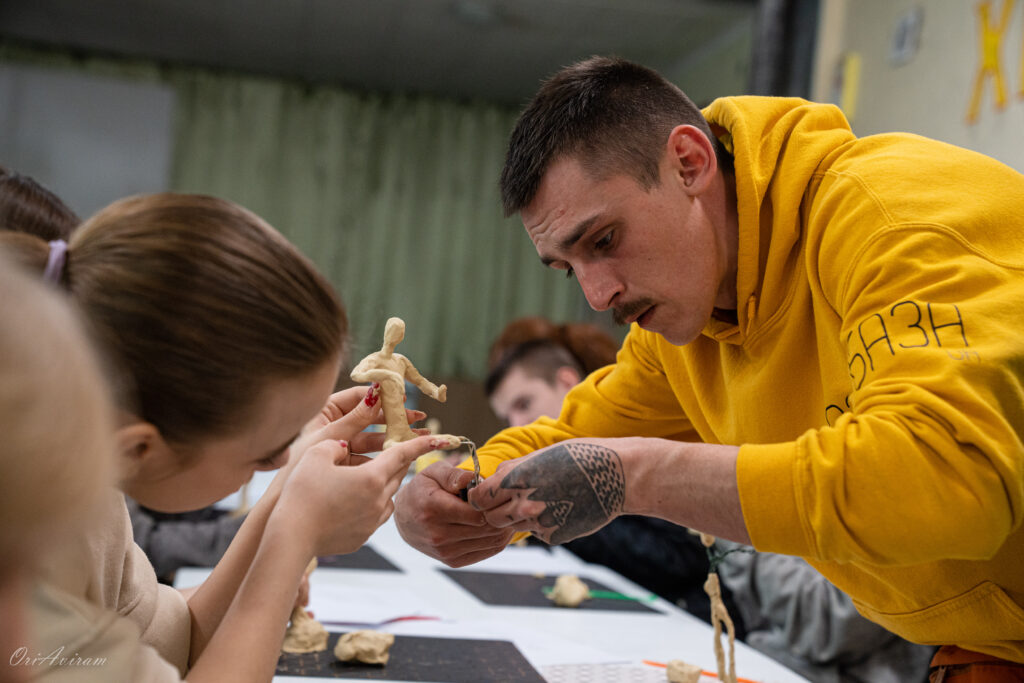
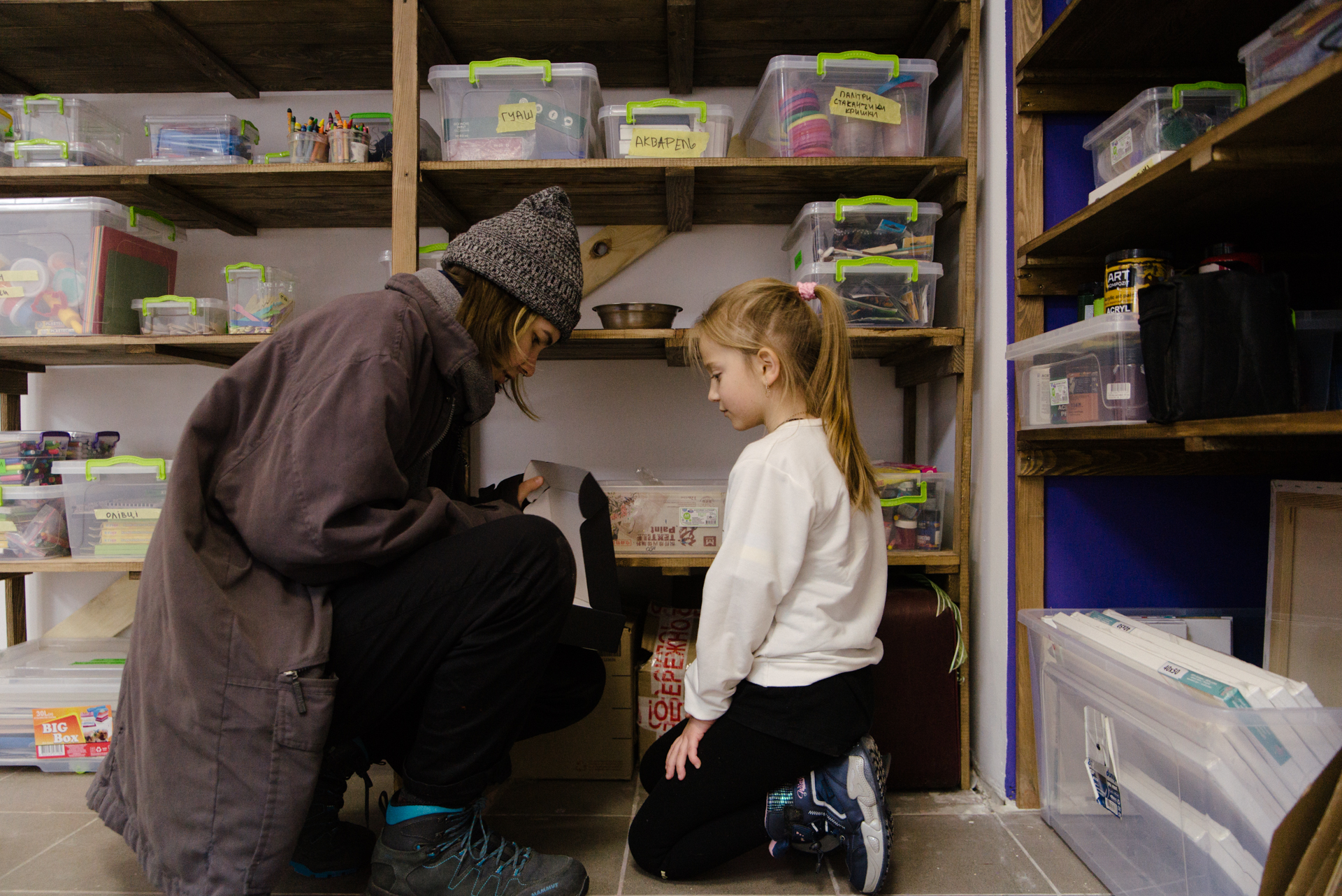
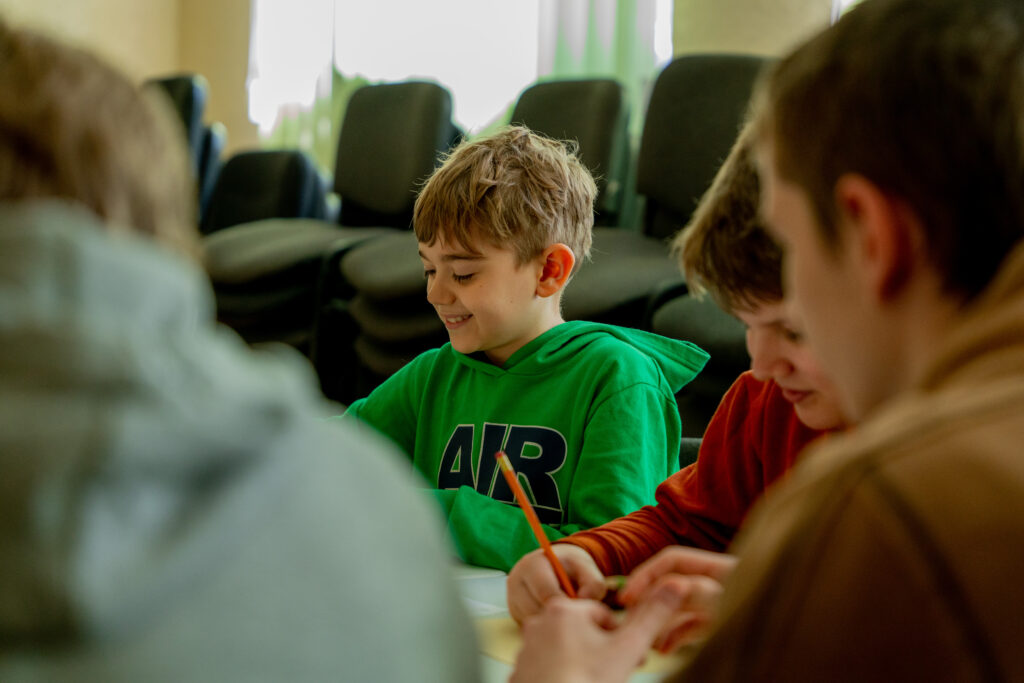
Working with kids along the eastern frontline.
CULTURAL SPACE
WORK WITH KIDS AND TEENS
What happens to a child when they have hardly any contact with their peers? When school lessons only take place online and there are no sports or cultural activities? In February 2024, there were still 33,000 children living in the Donetsk region. 33,000 children who will one day shape the future of Ukraine – and so far have known almost nothing but war and loneliness. Base UA regularly organizes art courses and educational events for them – throughout the region, including dangerous places like Kostiantynivka. In Kramatorsk, we run a cultural space for children and young people – the TERYKON.
All too often, these kids came into contact with volunteers who would show up, give them sweets or toys, take photos and disappear again. Relationships could never be built, trust never gained and contacts never maintained. Although this and social interaction are the most essential things for healthy development.
Base UA wants to provide sustainable help and give them a safe space. Our aim is to build trusting and long-term relationships with the children, which is why we usually work in smaller groups. Our main priority is the quality of our work and an individual, systematic approach for each child.
Since the end of 2023, our cultural space TERYKON in Kramatorsk has opened almost every day. This space gives us the opportunity to expand the areas of our work and introduce more systematic classes in several artistic fields. We are working on organizing classes in English, sex education, graphic design, programming and photography. We have created an open space where children and young people can feel safe both physically and mentally. A place where they can come together and hang out, but also learn, develop and discover themselves.
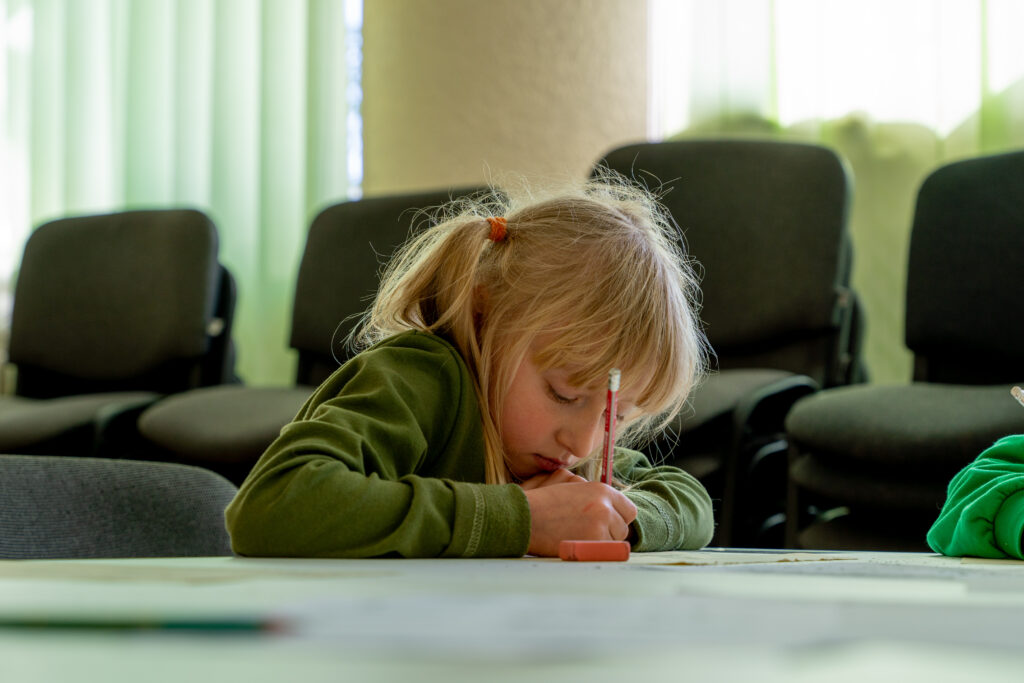
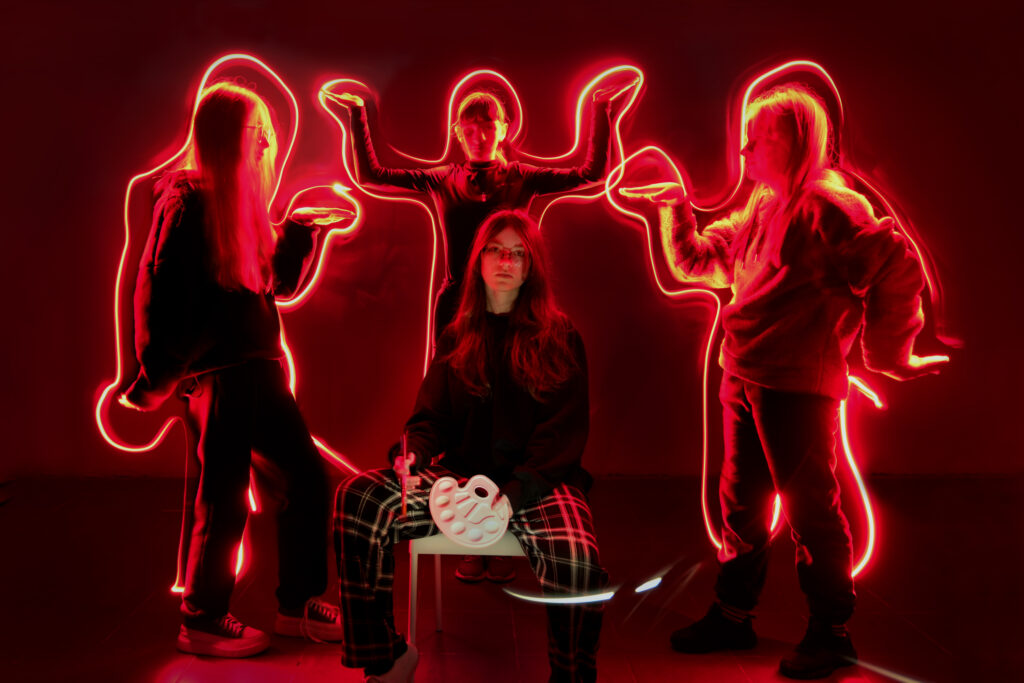
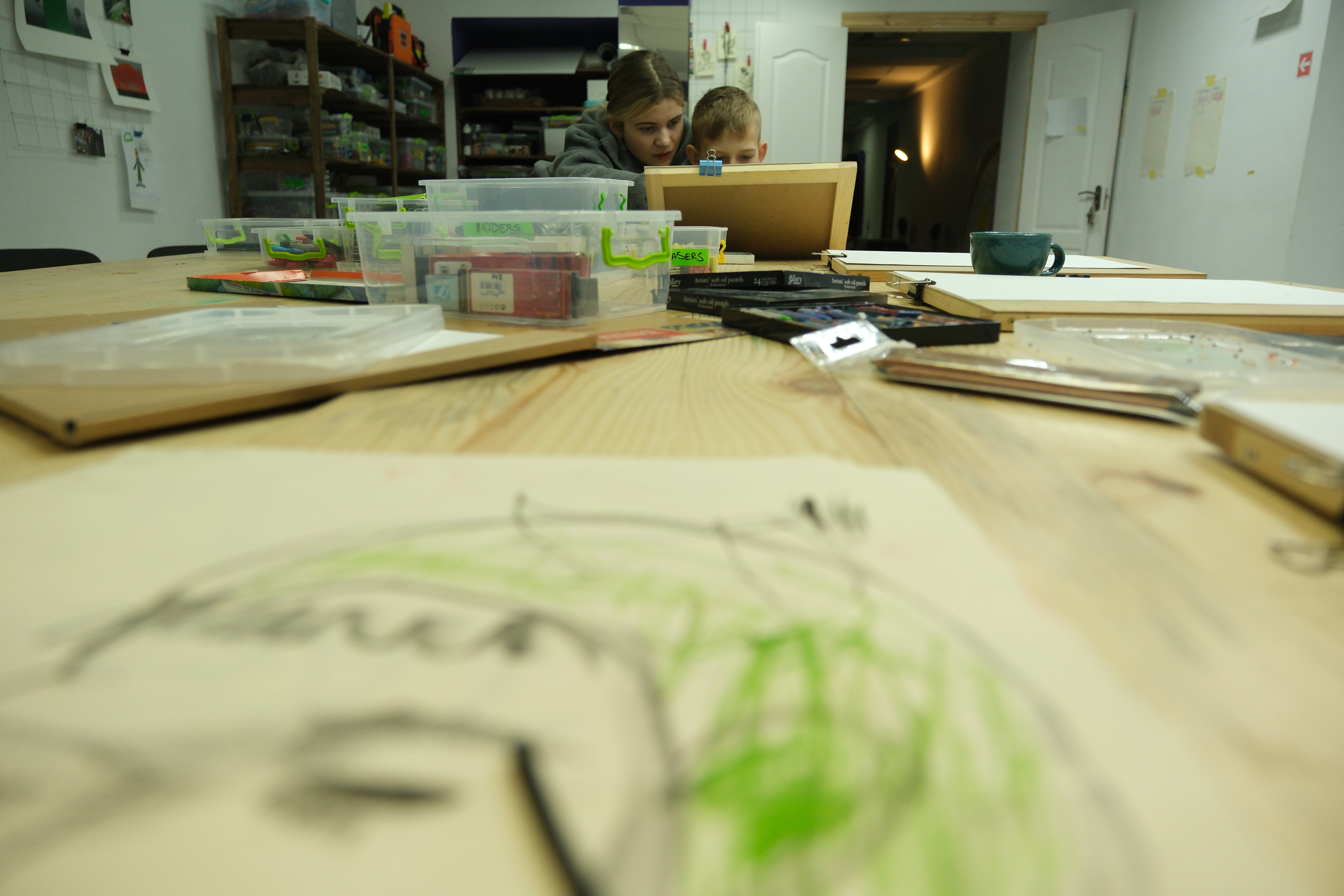
Our primary focus is on the well-being of children and teenagers, recognizing them as the most vulnerable demographic affected by the ongoing conflict. Throughout the global pandemic, these young individuals have been confined to online schooling, depriving them of vital peer interaction. Many of their friends have relocated both within Ukraine and abroad, further exacerbating their sense of isolation
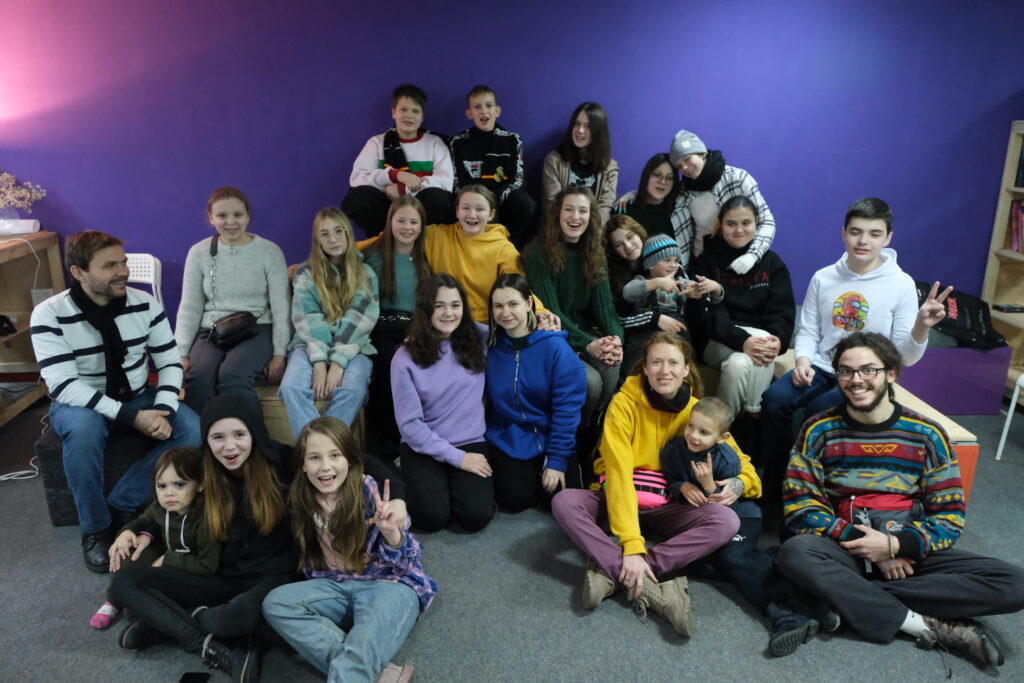
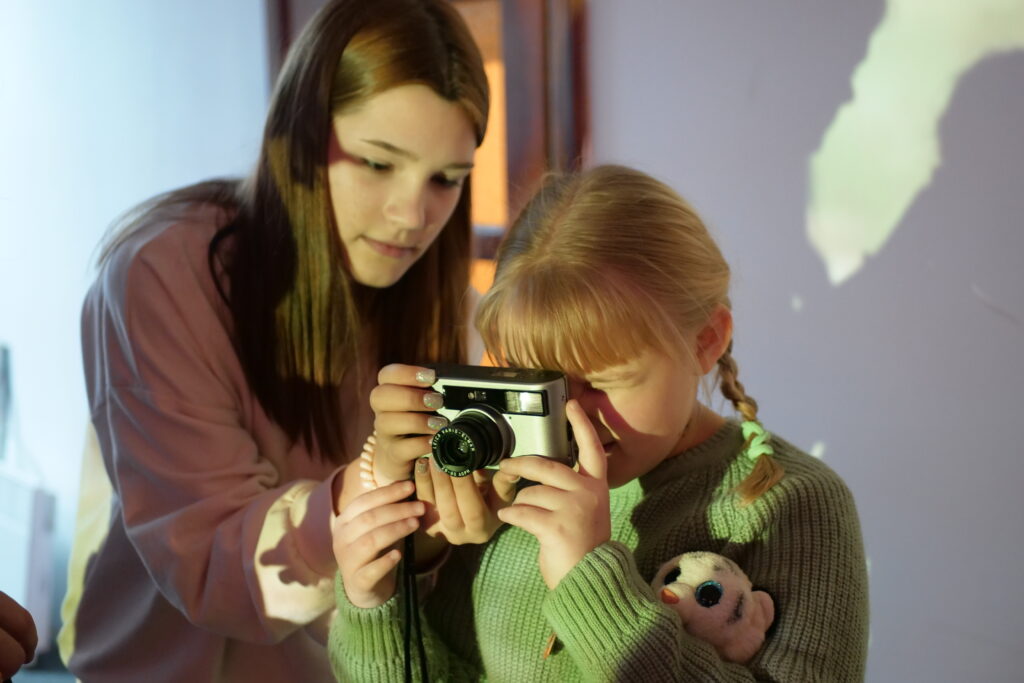
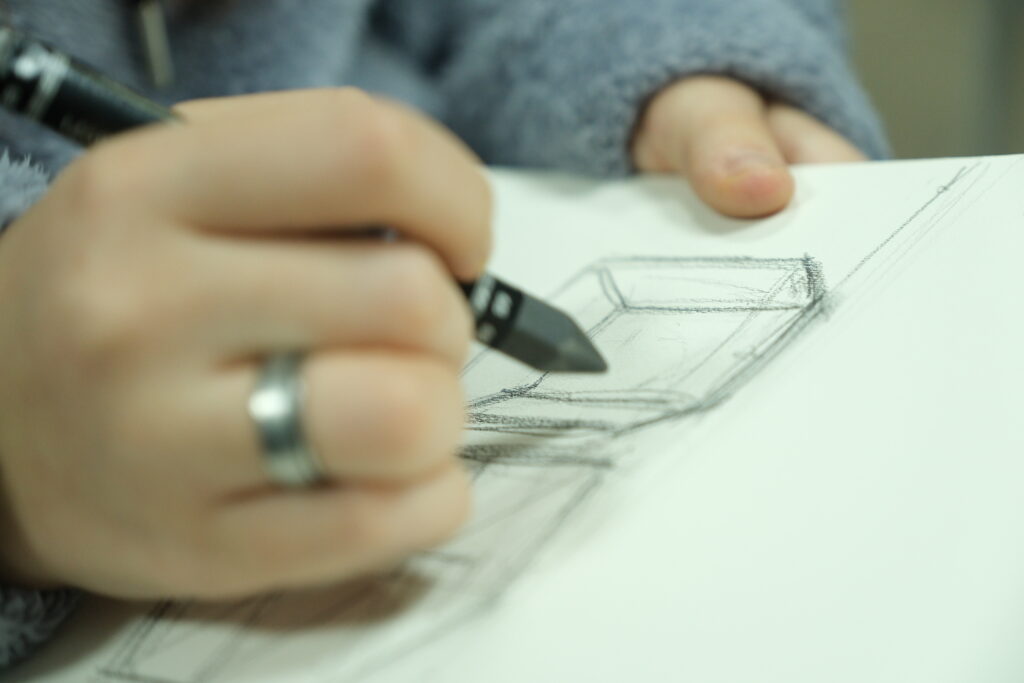
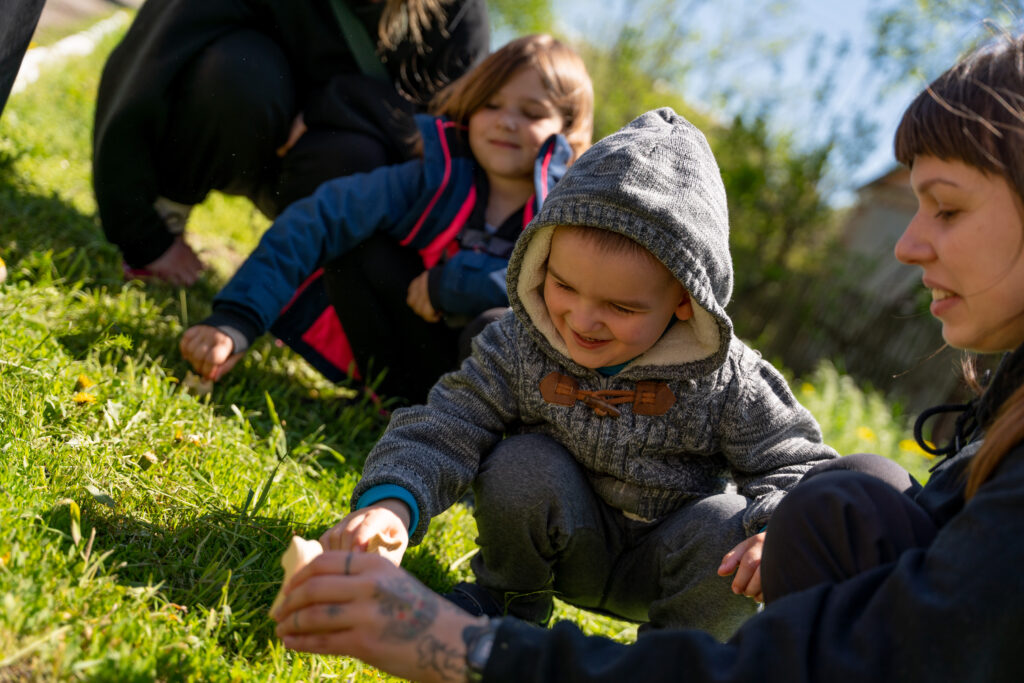
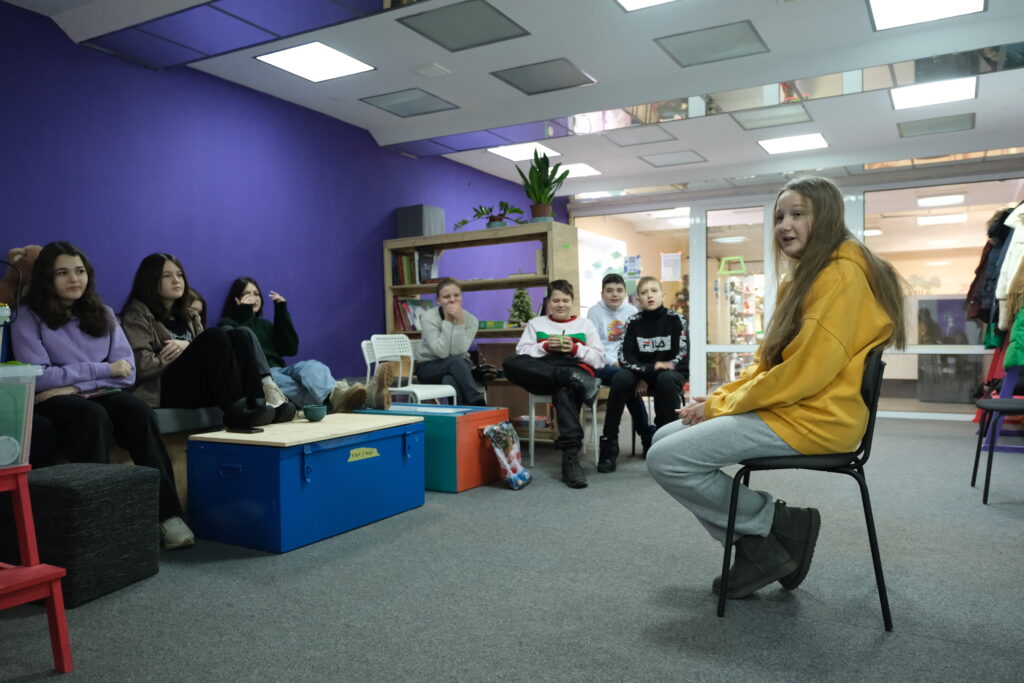
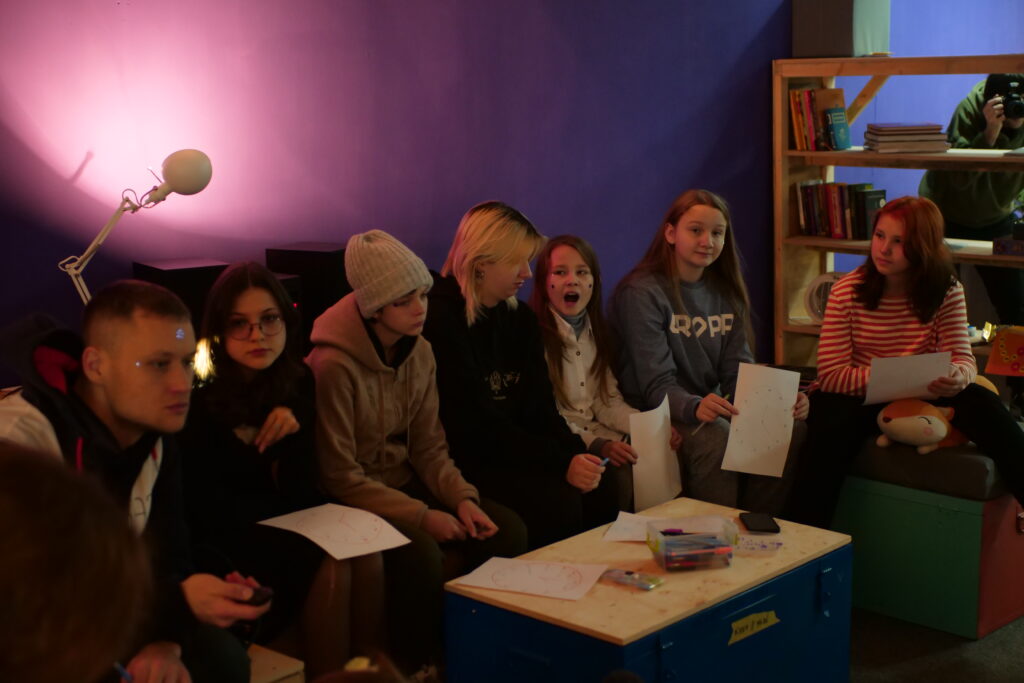
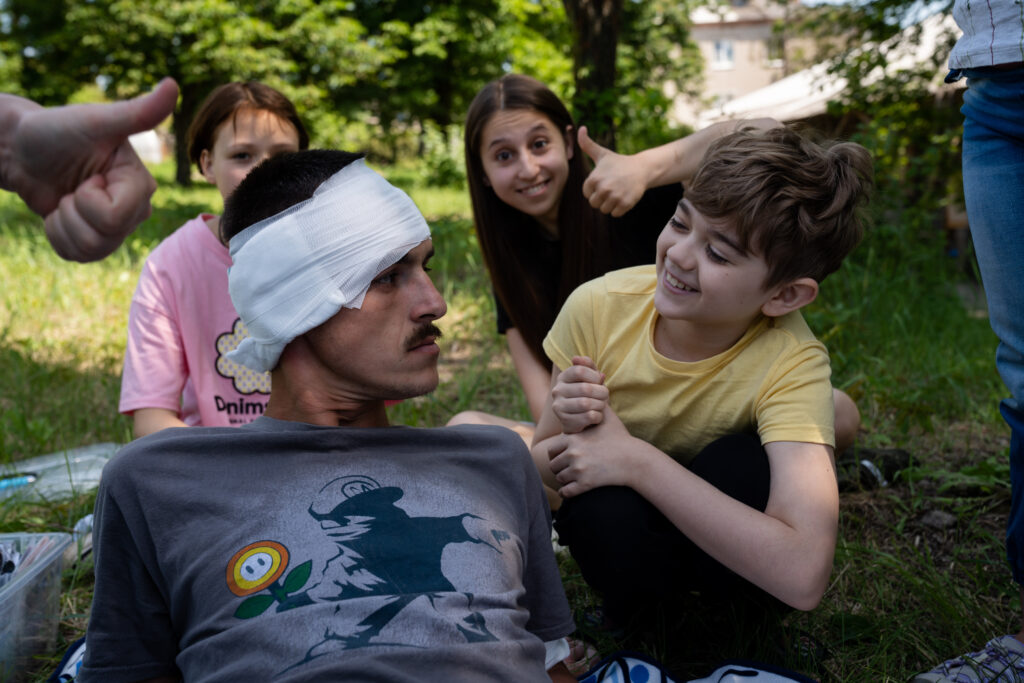
PERMANENT CULTURAL SPACE IN KRAMATORSK
CHILDREN IN CARE
Kramatorsk: Creativity and Community at Terykon
Last weekend, our cultural hub Terykon was transformed into a lively place of creativity. The motto: New Meanings
Gallery: Impressions Of Our Work With Kids in Donetsk Region
Take a look at what our cultural Team is doing.
Cultural work – “The most terrifying thing: still 3,800 kids in Konstantynivka”
Sasha leads Base UA’s cultural team on the ground. She originally comes from Donetsk City, which is occupied by Russia. How does it feel to be back in this environment? Why is it so important to work with kids? Sasha gives an insight into her cultural and social work.
Donetsk Region: Why we do cultural activities
Sometimes humanitarian work in Ukraine involves getting...


